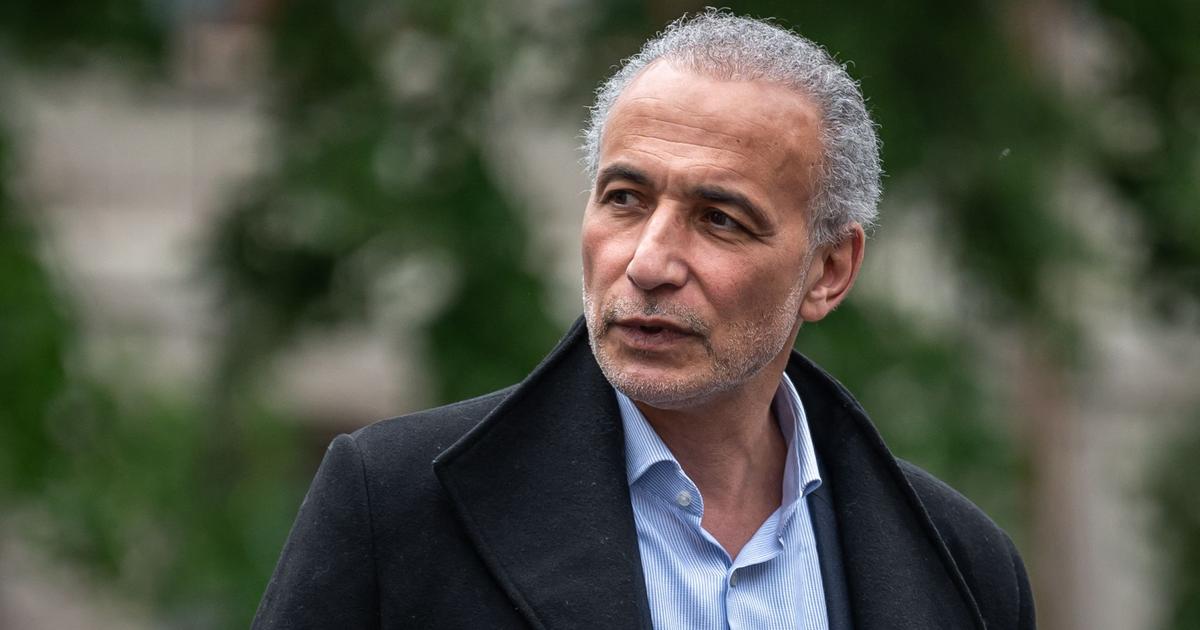Guadalupe Sánchez Nettel (Mexico City, 1973) chose her mother's surname "for obvious reasons, but also to vindicate the maternal lineage of intellectual women." However, a jurist and philosopher of law, her mother does not appear in her books as well as her father, a more imperfect but less demanding type who disappeared and reappeared in the lives of her children. After investigating her own life - emigration to France or humiliation for not being like the others -, in
The Only Daughter she
claims the possibility of not being a mother and yet being maternal. And he criticizes the lack of humanity in doctors and medicine. We spoke on Skype for about two hours. His home in the Mexican capital seems spacious and warm on the other side of the screen.
Criticizing medical errors could be scary at a time like this.
There are two very fragile moments in the life of the human being, birth and death.
And doctors still don't usually react humanely enough.
We need to be more sheltered.
Do we expect closeness from doctors that we do not demand from other professions?
I think it's because they present themselves as a profession that knows everything and can be trusted.
All works are trial and error.
I feel better when they treat me from their own humanity.
Errors are human.
It narrates from the pain itself.
Does that really load what is written?
You can't write about humiliation if you've never felt humiliated.
It's almost impossible to convey jealousy if you haven't felt it.
But you have not been on the brink of death like your characters.
I'm talking about emotions, not facts.
I can put myself in the shoes of a man because I have been in love, like him, or I have cheated, like him.
If you don't put yourself in his shoes, you're not fair to the character because when someone is very macho — a Cuban male, let's say — you want to laugh at him.
The character grows when I think about it as a whole: her wishes, her relationship with her mother… All my characters are very Guadalupe, in different aspects.
In his autobiography,
The Body I Was Born In, he
reveals that he was
bullied.
I got over it with writing, taking revenge on everyone, describing them as protagonists of catastrophes.
The funny thing is that they wanted to appear in a story.
That gave me a place in the little society that is a school.
My classmates wanted to be cool with me so that I would put them as characters.
How to overcome hatred?
When you realize that it hurts the most to hate yourself.
When you see that fire in your head is poisoning you.
And with empathy: when you wonder what someone who hates you has not understood.
Then you get to see their suffering.
But that part is difficult.
I don't know of anyone really strong who hasn't had to overcome some problem.
It is that we have no reason to draw out that vital force other than when it is needed.
What made you get it out?
In 1994, when the Zapatista uprising happened, I fled towards Chiapas.
In a speech by the indigenous revolutionary committee, they said: "Only when we dare to see as a country that which hurts the most, what makes us most ashamed of ourselves, will we be able to find integration."
I thought about what I would talk about if I dared to look at what hurts and embarrasses me the most.
And I wrote
The Guest,
my first novel.
Guadalupe Nettel, at her home in Coyoacán, Mexico City, in March.Germán Nájera + Iván Flores / EPS
About a girl inhabited by one thing.
Where did his pain come from?
Not to be the same as the others.
He didn't just have a macula on one eye.
My family got into the dynamic of trying to fix it, rather than accept it.
I felt defective because I couldn't see because they put a patch on my good eye.
My mother has that character.
For her everything must be corrected and perfected.
And that, in the end, is looking at what does not work.
Isn't it important to try to fix the problems?
Part of the solution is to accept them.
But that was the first pain.
Then came the separation from my parents, his disappearance, the fact that he went to prison ... And the pressure of not being able to count.
“Hide it all.
Build a facade.
Everything is fine".
His parents were atheists.
And hippies.
That generation had a way of understanding sexual freedom openly that was uncomfortable for us.
They were experimenting and everything had to be blown up.
When I wrote
The Body I Was Born In I
felt resentful that we had been treated like guinea pigs.
But now I think they were very brave.
They achieved many changes compared to what we have achieved that we already thought was not worth trying.
We have been a generation of disillusioned nihilists almost since we were born.
How do you educate yourself after that experience?
The most natural way to find out what sex is about is to be told about it in the schoolyard.
Let it come to you little by little.
I talk a lot with my children.
But I am not a perfect mother.
That does not exist.
Is motherhood the same as fatherhood?
Definitely not.
There is no social expectation about parents.
That a father decides to be a good father is a plus for them.
But a mother by default must be a good mother.
It goes with the word.
In
The Only Daughter I
tell that it is the woman who must take care of all the roles when there are problems because the father, until he recognizes the son, has no right to take care of him.
In his books the father is absent.
And a lot is required of the mother.
The relationship with the mother often produces a mirror effect.
There are expectations and, therefore, reproaches.
Maybe that doesn't happen between daughter and father.
Why was his father in jail?
They accused him of a fraud.
He did not speak of the subject.
Didn't you ask him?
Yes, but he was so sad that ... I also liked him who knew how to ask for forgiveness.
I learned from him that he heals being apologized and acknowledging a mistake.
Has it been psychoanalyzed?
Little.
My father was a psychoanalyst and he instilled it in me, I have done a lot of introspective work.
Did your father become a psychoanalyst by psychoanalyzing himself?
Yes. He was a self-made man.
He started out working in a bank, studied applied mathematics, started an insurance company, and began psychoanalysis until he trained as a psychoanalyst.
He spoke openly of his childhood traumas and wounds.
And his mother?
Less, he says that it did not serve him much.
Did it work for you?
As a method.
The mechanism of asking yourself about everything and not prejudging remains in your head.
In your novels there is an effort to maintain the family unit, but your parents separated, and you yourself from the writer Gastón García Marinozzi.
Is a relationship between two writers difficult?
The truth is that I think so.
It has very nice things: being able to share the love for literature;
but, unless they are two very calm and mature people, they also have a lot of competition.
Did your partner recognize your merits?
Yes. But it gives me the feeling that at the same time he felt threatened.
Is it a myth that a strong woman has to be alone?
Yes. There are men capable of being with strong women.
But it is better that they do not feel threatened in their territory.
I'm not just speaking for myself.
Why did he write about Octavio Paz and not about Elena Garro, who was his wife?
I think I wanted to understand that person — with light sides and dark sides — who in the 1990s was an omnipresent figure, a kind of cultural cacique in Mexico.
He decided who published, who gave lectures.
Like Neruda in Chile.
And like Vargas Llosa now.
There are remnants of that time.
But the 21st century is something else.
Has there been a
popesa?
That he accumulated so much power, not even remotely.
The boom story did not include any women.
And their writings show that they existed.
The most intimate literature of Elena Garro or Alejandra Pizarnik that speaks of the everyday and is less totalitarian fascinates us today.
They wrote about powerful men, what they wanted to be.
And today that makes us all lazy.
He called President Felipe Calderón a criminal.
It is.
What do you think of President López Obrador?
Who stayed in the seventies believing in fossil fuels such as oil or seeing the indigenous peoples as backward peoples who must be modernized. He had to give up on his ideals. He spoke of judging previous politicians who had stolen and been responsible for so many conflicts with the drug traffickers to end with amnesty and forgiveness. He criticized impunity and now allows it. It has not collected taxes from the great millionaires of this country such as Slim, Espinosa or Iglesias, and has allowed this type of people to continue enriching themselves without giving back to the country part of what it has given them. He has also had an irresponsible attitude towards the coronavirus: he has not set an example by putting on the mask. And when there is no public health infrastructure capable of coping with the pandemic, as is the case in Mexico,you must bet everything on prevention and distance. I understand that people who live on the street cannot be confined from selling quesadillas, but at least put on a mask and set an example.
March 2021 - Guadalupe Nettel, at her home in Coyoacán, Mexico City.Germán Nájera + Iván Flores / EPS
The pandemic is not the same for everyone.
Some lives are worth less, and the pandemic has magnified that reality.
It has removed the foundations of our world and uncovered injustice and violence.
In Mexico we have gone from 9 to 11 femicides a day.
The pandemic is like a magnifying glass, it magnifies things.
The WHO has had to ask rich countries to share vaccines.
Was the pandemic going to match us?
It is true that it is not the same with work or with social security or without a home.
But for the most important thing, which is life, it does equalize us.
It has shown that we are interconnected.
If the one next door gets sick, even if he's poor, old or I don't like him, I can get sick myself.
In the vital, the whole planet is together.
What leads you to inquire where we want to avoid looking?
Since I was a child I have had a tendency to discover taboos and talk about what people do not want.
I am interested in what we want to cover with earth and carpets to avoid it.
When I see something, for example the son of my friend born with a neurological disability, and I see how people prefer not to talk about it, how one becomes silent or gets used to living it hidden, it calls me talking about it.
Did you consider not having children like the protagonist of
The Only Child?
No. I always wanted to have.
But I wonder if in that want there were not also expectations of society.
Or my family.
I think now it is easier for a woman to decide not to have.
Before, if a woman freely chose not to be a mother, she was left in suspicion.
In his novels there are many characters voluntarily locked up.
The confinement atrophies, forces us to a uniformed behavior that makes us be calm, but what happens to our true personality?
She remains contained, waiting for the moment to come to light, even if it is in a nervous breakdown.
How have you handled the confinement?
Exactly like this, with several nervous attacks. I must admit it. At first I appreciated not running with the children to soccer and to school. Later, the monotony of the same days made me see that it takes a lot of discipline to create routines. I am very scattered. I like external factors to break my discipline. Having within a space all the facets of my life: the children's school, the UNAM magazine, the promotion of the novel…, it drives me crazy. It's like those people who mix jam with egg and beans. In the end everything tastes the same to you. We live locked up and when we stick our heads out we hear people speak of death, the pain of the people, the disease, the economic problems. The moment demands us to be centered and the demand of not being able to break the monotony is boring.
It is politically incorrect and even prejudiced writing: "Women with glasses are fearful."
The same because I wear glasses and I'm a little scared.
In general we are insecure.
With the same data, we have more tendency to put ourselves in the worst than to hold on to hope.
Is the self-destructive drive more feminine than masculine?
We are more inclined to analyze things.
Sometimes, above living them.
My mother used to say: "If you want to be happy as you say, don't analyze."
Pliny the Elder wrote that all animals know what they need except man.
You know it?
No way.
I am part of humanity that doubts a lot.
In nature, diversity is possibility.
That is wise.
The zoologist Andrés Cota wrote in the UNAM magazine about how species practice sex: from the orgies of snakes to species that can change their sex in the same day.
Variety is wealth.
The penguins hatch the eggs in groups while the females forage for food.
Collective breeding is typical of mammals.
Nature is a school of coexistence.
Diversity instead of disability?
Many times it is difficult to bear the differences of others.
We see blind people and we close our eyes as if we feel guilty about their problems.
Not everyone has the strength to deal with the disabled.
The physical anomaly runs through everything you have written.
The beauty of the monster is a subversive theme because it indicates that it can be otherwise.
Monster is what it shows.
In what he writes there is a lot of
voyeurism:
protagonists who spy on someone else's shower, who listen behind the doors ...
Understanding the other through exhaustive analysis is part of my hobbies.
Hear.
Be attentive to everything that happens around me.
I have always done it.
Especially when I lived in France, where the walls are thin, I was very close to what was happening on each floor.
I like it when people take off the mask they are wearing.
That happens in privacy.
Then the little monster comes out, the human thing, which we don't want others to see and which I find fascinating.
When they are not watching you, you reveal yourself as you are.
Would you like to be watched so much?
It can be a form of love. There are people who do. Journalists, for example.





/cloudfront-eu-central-1.images.arcpublishing.com/prisa/EJNVOWXNONDYDIXFYKNSPI2P4Y.jpg)





/cloudfront-eu-central-1.images.arcpublishing.com/prisa/KMEYMJKESBAZBE4MRBAM4TGHIQ.jpg)


